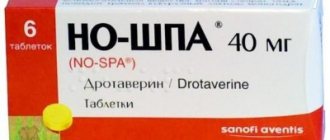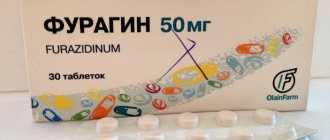5008Pavel
Aspirin is an indispensable medicine for relieving fever and eliminating pain of various origins. This medicine is a real salvation for humans. And some cat owners even manage to give it to their pets. But can a cat be given Aspirin? Not every mustachioed owner can give the correct answer to this question.
Let's figure out whether we are risking the life of our pet by using this drug.
© shutterstock
Interaction with other drugs
- Inform your veterinarian about any other medications you are giving to your pet.
- Veterinarians often prescribe two different medications that may interact with each other. In this case, your veterinarian may vary the dose and/or monitor your pet more closely.
- Aspirin may interact with the following drugs: acetazolamide, sodium bicarbonate, methionine, ammonium chloride, ascorbic acid, furosemide, phenobarbital, phenylbutazone, corticosteroids, heparin, penicillin, sulfonamides, probenecid, sulfinpyrazone, spironolactone, methotrexate, valproic acid, phenytoin, those tracycline, digoxin , aminoglycosides, captopril, enalapril and propranolol.
- If your pet experiences any unusual reactions when using various medications, please inform your veterinarian.
Pain in cats, like other animals, is a symptom of serious illness or injury. In order to help an animal suffering from pain, it is necessary to cure the underlying disease. If painful sensations significantly worsen the cat’s quality of life, then mainly two groups of painkillers are used – NSAIDs and narcotic drugs. The problem of choosing a safe analgesic for cats is the toxicity of many drugs.
- Show all
Aspirin
The most common medication that can be given to a cat is acetylsalicylic acid, or aspirin. It belongs to the class of non-steroidal anti-inflammatory drugs.
This is one of the safest medicines. But it also needs to be used carefully. Even a small overdose can be accompanied by side effects. A sick animal develops profuse salivation, a sharp decrease in appetite, and an unsteady gait. The cat may even become depressed. Vomiting and, as a consequence, dehydration of the body develop less frequently. Sometimes. Taking aspirin may be accompanied by stomach and intestinal bleeding. Toxic liver damage is extremely rare.
Acetylsalicylic acid is given at the rate of 5 milligrams per 500 grams of animal weight. That is, if it is easier to calculate the dose, then one aspirin tablet for an adult corresponds to eight single doses for a cat, whose weight is approximately 3.5 kilograms.
You can replace adult aspirin with children's aspirin, which is exactly the safe dose. It is imperative to remember that aspirin should never be given on an empty stomach. Before taking the drug, the sick animal must be fed, or the medicine must be given with food. If any of the side effects appear, you should immediately stop taking the drug.
Pain syndrome in cats
Many diseases in cats are accompanied by pain. Pain aggravates the course of the disease and worsens the animal’s quality of life. With severe pain in cats, overexcitation of the nervous system, disruption of the functioning of individual organs and systems, shock and death of the animal can occur. Most often, cats experience severe pain due to the following pathologies:
- oncological diseases;
- surgical operations;
- injuries (ruptured ligaments, internal organs, fractures, etc.);
- inflammatory diseases of various localizations - in the urinary system, ears (otitis media), pancreas (pancreatitis), uterine mucosa (endometritis);
- dilated stomach syndrome, peritonitis;
- chronic renal failure (CRF);
- hepatic and renal colic;
- diseases of the nervous system – polyradiculoneuritis, neuromas and others;
- toothache, especially severe in FORL (progressive tooth decay in cats).
In many cases, cats do not show that they are in pain. Signs of pain can be determined by the animal's unusual behavior. The behavior of a cat in pain can be different:
The highest pain center in cats is in the brain. The appearance and transmission of a pain impulse from the periphery to the brain can be changed through the use of analgesics that affect different parts of the nervous chain. Sensory nerve receptors protect various substances with an analgesic effect:
- narcotic;
- neuroleptic;
- antispasmodic;
- anti-inflammatory;
- antipyretics;
- local anesthetic.
The difficulty in choosing an analgesic for cats is that many drugs used to treat people, dogs and larger pets are dangerous for cats due to their high toxicity. The remaining drugs that have the least side effects should be used strictly in the recommended dosage, since failure to comply with it can lead to the death of the cat.
Methimazole sodium, or analgin, can cause changes in the blood (leukopenia, anemia) in cats, including death. This drug is especially dangerous for cats with diseases accompanied by a decrease in the level of leukocytes in the blood (panleukopenia, infectious and inflammatory diseases). Therefore, this analgesic for the treatment of cats must be used with caution.
Paracetamol-containing drugs also have a negative effect on the circulatory system of animals. In addition, paracetamol is toxic to the liver and kidneys. Toxic damage can occur several hours after the cat is given the medicine, in the form of the following symptoms:
- vomiting, poor appetite;
- blood in the urine;
- increased salivation;
- hard breath;
- edema.
In severe cases, the animal dies after 18-36 hours.
When using no-shpa injections to eliminate hepatic and renal colic, some animals develop individual intolerance to the drug - the hind legs fail, spontaneous excretion of feces and urine occurs.
The toxic dose of aspirin for cats is about 22 mg/kg. Acetylsalicylic acid, especially in the form of uncrushed tablets, causes irritation of the gastrointestinal mucosa, which can lead to ulcerative lesions and bleeding. The drug causes suppression of bone marrow functions and the production of blood cells, liver and kidney failure in cats, up to coma and death of the animal. Ibuprofen and Indomethacin have a similar effect.
Intolerance in cats, in various forms, can occur to any anesthetic drug administered orally (PO), intramuscularly (IM) or intravenously (IV). Therefore, medications must be used with caution, as prescribed by a veterinarian, and the dosage must be strictly followed.
Contraindications to the use of pharmaceuticals
In addition to the fact that the medicine can provoke severe intoxication of the body, there are other contraindications that prohibit giving Aspirin to a cat. The medication is not prescribed if the following conditions are observed in your pet:
- age up to 6 months;
- expectation of offspring;
- lactation;
- insufficient blood clotting;
- kidney pathologies;
- lack of vitamin K in the body;
- allergic reactions to the components that make up the medication;
- disruption of the digestive system.
Return to contents
Approved drugs
Painkillers for cats are divided into 2 types:
- Truly analgesic drugs are narcotic painkillers, opioid drugs based on morphine. These drugs are characterized by a strong analgesic effect, as they directly suppress the activity of the pain center in the brain. In addition, they have a hypnotic and sedative (calming) effect. The use of opioids causes drug dependence, so they are prescribed in exceptional cases. The most powerful of them - Morphine, Fentanyl, Trimeperidine are prohibited in Russia. Many of these drugs used for pain relief are not suitable for cats, as they cause increased excitability in them.
- Non-narcotic drugs. They successfully cope with pain due to inflammation of muscles and joints, the peripheral nervous system, but with more severe pain associated with injuries, surgery, and oncology, they are not so effective.
Of the non-narcotic drugs for pain relief in small pets, NSAIDs are most often prescribed - non-steroidal anti-inflammatory drugs, most of which are also used in the treatment of humans. Their use in many cases in cats leads to the development of acute gastritis a week after the start of use. There are also specialized NSAIDs for small pets - Quadrisol 5, Ketofen, Rimadyl R, but they also irritate the gastrointestinal mucosa (up to 20% of all cases of use). Therefore, these painkillers for cats need to be fed to the animals during or after meals. In order to prevent the development of gastritis and stomach ulcers during long-term use of NSAIDs in animals, it is recommended to give Biocorrector RD for cats and traditional histamine H2 receptor blockers:
- Zantac or Ranitidine, po, 2 mg/kg every 8 hours;
- Famotidine, 0.5 mg/kg every 12-24 hours, IM, SC or PO;
- Cimetidine, 2-5 mg/kg every 12 hours, p.o.
These should be used throughout the course of treatment using NSAIDs. The problem of chemical gastritis when prescribing analgesics in veterinary medicine still remains unresolved.
Systemic non-narcotic pain medications for cats that can be used at home.
| Name of analgesic | Dosage for adult cats per day | Applicability of painkillers | Note |
| Amidopyrine | 0.1-0.3 g, po | Acute articular rheumatism, inflammation of joints, muscles, spasms of blood vessels, intestines, uterus | Used in powder and tablet form |
| Analgin | 30 mg/kg, po | Acute articular rheumatism, pain with intestinal atony | The analgesic effect lasts for 1-2 hours. |
| Antipyrine | 0.2-0.5 g, po | For rheumatic processes | In case of overdose it is toxic, convulsions occur |
| Butadion | 0.1-0.2 g, po, twice a day | Acute form of rheumatism, polyarthritis | Cannot be used for liver and kidney diseases, leukopenia, anemia, enteritis. Irritates the stomach, so do not give on an empty stomach |
| Salicylamide | 0.1-0.2 g, po | Analgesic, antirheumatic agent | Better tolerated than other salicylates, dyspeptic disorders occur less frequently |
| Ketofen | 2 mg/kg s.c., i.m. or 1 mg/kg p.o. | Broad-spectrum analgesic and antipyretic | Do not give to a cat orally if you have inflammatory diseases of the gastrointestinal tract or kidney failure. |
| Rimadyl 5% | 0.24 ml per 3 kg, IV, SC | Anti-inflammatory and analgesic, used to relieve pain after surgery | Veterinary drug. Can be used once. Less toxic than other analgesics. Cannot be used for heart, liver, or kidney diseases |
| Dexafort | 0.1-0.2 ml, s/c, i/m | Injuries accompanied by swelling | Veterinary drug. Cannot be used for heart or kidney failure or infections |
| Flexoprofen (ketoprofen) | 2 mg/kg, IM, IV | Trauma and postoperative period | Veterinary drug from the group of NSAIDs produced in Belarus |
| Analgivet | 0.05-0.1 ml/kg, IM, SC, 1-2 times | Inflammation of the musculoskeletal system and gastrointestinal tract, trauma, postoperative period | Veterinary drug from the NSAID group |
| Vetalgin | 1 tablet per 2 kg of weight, 1-2 times | Pain due to inflammation of the musculoskeletal system, neuralgia, injuries, spasms of smooth muscles of the gastrointestinal tract and urinary system, urolithiasis, after operations. | A veterinary drug from the NSAID group. The tablets are not divided into parts. Contraindicated for gastrointestinal ulcers, renal, liver failure, diseases of the hematopoietic system |
Opioids and their synthetic substitutes for cats.
Signs of overdose
If you do not adhere to the recommendations for the use of the drug and, in particular, do not follow the dosage, then the cat may become poisoned. The signs of an overdose of Aspirin are clearly expressed, so you can easily understand that something bad has happened to your cat. The following facts may indicate this :
- the pet will have difficulty hearing;
- he will lose orientation in space, and this happens due to paralysis of the nervous system;
- stomach upset and vomiting will occur;
- the skin takes on an inflamed appearance;
- the animal will refuse to eat;
- The cat will produce a large amount of saliva.
And sometimes there is even bleeding from the anus or the pet faints, after which, as a rule, a coma sets in, this is the so-called Aspirin lethargy.
As you can see, Aspirin is toxic, because as soon as you notice the symptoms of poisoning with this drug, you should immediately take action. In this matter, not every day is important, but every second. Therefore, you should immediately call a veterinarian. While waiting for his arrival, thoroughly rinse the cat’s stomach so that as little acetylsalicylic acid as possible is absorbed into the blood and distributed throughout the body. To do this, the animal should be given a large amount of water to drink and thus induce vomiting. Do this about two times. After this, the cat is given about 5 tablets of activated carbon. And remember that the first 12 hours are the most important, it is during this time that you can save your cat from death.
To determine the degree of poisoning, the veterinarian will take urine from your pet and do a biochemical blood test. With such poisoning, anemia and ESR disturbances will be observed. Blood clotting will also greatly decrease; the greater the poisoning, the slower this process will occur.
In very severe forms of overdose, the cat is prescribed medications that will help heal the gastrointestinal tract and promote the healing of wounds on the mucous membranes.
Pancreatitis
According to veterinary statistics, pain syndrome in cats is expressed in ¾ of all cases of pancreatitis. The drugs of choice for helping animals with this disease are opioid painkillers:
- for mild to moderate pain - Biprenorphine, which is administered intramuscularly or intravenously at a dosage of 0.005-0.015 mg per kilogram of animal weight every 4-8 hours;
- for severe pain - Fentanyl, subcutaneously, intramuscularly or intravenously at 0.005-0.01 mg/kg every 2 hours.
In severe cases of the disease, the animal may be prescribed multicomponent analgesic therapy from a combination of Fentanyl and Ketamine at 0.002-0.004 mg/kg every hour. This method of administering analgesics is more effective and safe due to the reduced dosage.
To consolidate the analgesic effect, you can use patches with Fentanyl (half or a whole patch, which is changed every 3-4 days). At home, you can give your cat the following analgesics in tablets:
- Butorphanol, 0.5-1 mg/kg, every 6-8 hours;
- Tramadol, 4 mg/kg, every 12 hours.
Injuries
If there is no damage to internal organs, then local remedies are used to relieve mild pain. For dislocated limbs and bruises in cats, you can apply an ice pack to the damaged area, which will temporarily relieve the pain. You can use special pain-relieving patches used for people:
- Fentonyl;
- Ketonal;
- Kefentek.
Before attaching the patch, you must shave the skin on the affected area.
Veterinary gels and sprays that have anti-inflammatory and analgesic effects are used to treat bruises:
- Safroderm-gel;
- Bio Groom spray;
- Travmagel.
For more serious injuries, systemic painkillers (in tablets and injections) are used.
Oncological diseases
For cancer in cats, the most effective painkillers are narcotic analgesics. You can buy this drug only as prescribed by a doctor. Long-term use is addictive, and it is necessary to periodically change the painkiller or increase the dose.
At home, NSAIDs can temporarily relieve pain in a cat, but they negatively affect the animal’s gastrointestinal tract, liver, kidneys and hematopoietic system. In this case, homeopathic remedies help selectively, and the effect of their use is less.
Sterilization
Sterilization (castration) is a very painful procedure for cats. In the first hours after the operation, the animals are depressed and have no appetite. Therefore, in such cases, it is recommended to help the cat with painkillers. Very often, veterinarians do not warn about this - in the first 3-5 days after the operation, animals need to be given painkillers.
As an analgesic you can use:
- Loxicom oral suspension for cats. The drug is available in two concentrations of the active component - 0.5 and 1.5 mg/ml. On the first day, the cat is given 0.1 mg per 1 kg of weight (for a concentration of 0.5 mg/ml - 0.2 ml/kg). Starting from the second day, the amount of the drug is reduced to 0.05 mg/kg.
- Ketofen, according to the dosage indicated in the table above.
- Rimadyl.
- 1% solution of Ketofen 0.2 ml/kg, subcutaneously, 1-3 days.
- Medicines intended for humans - Ketonal (Ketoprofen) - can also be used for a short time. To do this, 0.2 ml of the drug is mixed with 1 ml of saline solution or water for injection. The resulting amount is applied per 5 kg of cat weight. If the cat is smaller, then a reduced volume is administered. The injection is administered subcutaneously, once a day.
The use of an analgesic after sterilization helps to quickly restore the animal's appetite and strength.
Diagnosis and treatment
If you suspect Aspirin poisoning , or your pet has eaten the drug without your knowledge, you urgently need to have its blood tested. It is necessary to conduct a biochemical blood test and also check the urine to determine the dose of the drug and the degree of its danger to the animal’s body. Animals poisoned by Aspirin always have severe anemia , ESR, viscosity and other blood parameters are impaired, and it takes a very long time to clot. The longer the clot forms, the more dangerous the degree of poisoning.
Remember that after poisoning, the maximum period within which everything can end safely is 12 hours from the moment you take Aspirin. The sooner treatment begins, the higher the chances of a good outcome. As we have already said, the simplest therapeutic method is inducing vomiting. The stomach should be cleansed urgently so that as little acetylsalicylic acid as possible can be absorbed into the blood. After cleaning the stomach two or even three times, the cat needs to be given five or six (or even more) tablets of activated carbon to completely cleanse the gastrointestinal tract of drug residues.
In severe cases, drugs are prescribed to promote healing of the intestinal and gastric mucosa in order to minimize the likelihood of developing ulcerative and/or erosive damage to the digestive organs. Also in these situations, blood transfusion is indicated, but in our conditions there is no point in relying on this. During the treatment period, the cat should be shown to the veterinarian at least once every three days.
Let's summarize . Aspirin for cats is poison. It is used only in extreme cases, under the responsibility of a veterinarian, under his constant supervision.
Toothache
For toothache and traumatic lesions of the cat’s oral cavity, the drugs of choice are gels:
- Metrogil Denta;
- Homeopathic gel Traumatin;
- Dentavedin;
- Nibbler;
- Strong teeth (has a weak analgesic effect).
Treatment of the oral cavity for infectious inflammation should be aimed at eliminating pathogenic microorganisms. The surface of the gums near the affected tooth in a cat can be lubricated with a solution of chlorhexidine.










